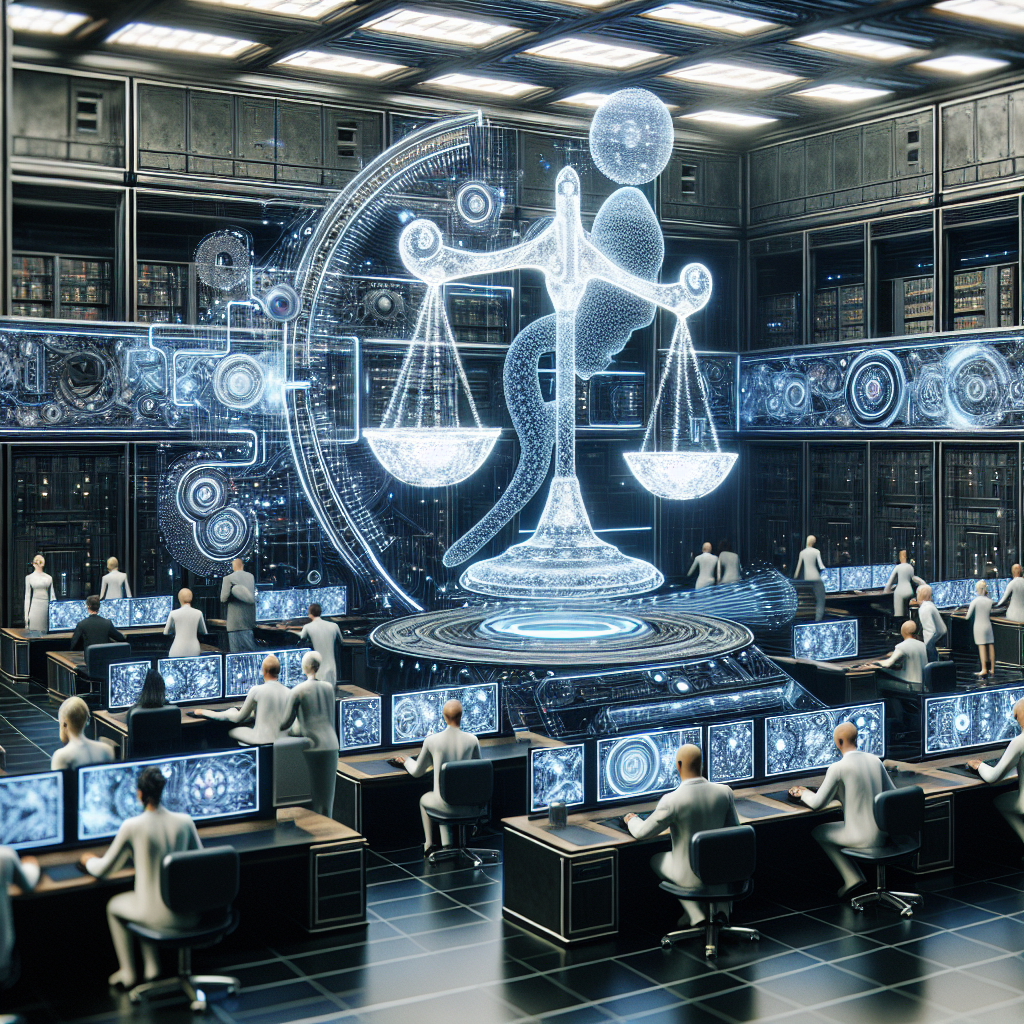The use of artificial intelligence (AI) software in criminal justice systems is a topic that has been gaining increasing attention in recent years. AI technologies have the potential to revolutionize the way that criminal justice is administered, by automating processes, predicting outcomes, and improving decision-making. However, there are also concerns about the potential biases and ethical implications of using AI in this context. In this article, we will explore the future of AI software in criminal justice, the benefits and challenges it presents, and the ethical considerations that must be taken into account.
Benefits of AI Software in Criminal Justice
There are several potential benefits of using AI software in criminal justice systems. One of the most significant advantages is the ability of AI to automate repetitive tasks and streamline processes. For example, AI can be used to analyze large volumes of data quickly and efficiently, enabling law enforcement agencies to identify patterns and trends that may not be apparent to human analysts. This can help to improve the accuracy and speed of criminal investigations, leading to more effective outcomes.
AI software can also be used to predict future criminal behavior, by analyzing past data and identifying individuals who are at a higher risk of reoffending. This can help law enforcement agencies to allocate resources more effectively, by focusing on individuals who are most likely to commit crimes in the future. In addition, AI can be used to identify potential bias in decision-making processes, by analyzing data and detecting patterns of discrimination.
Challenges of AI Software in Criminal Justice
Despite the potential benefits of AI software in criminal justice, there are also several challenges that must be addressed. One of the main concerns is the potential for bias in AI algorithms, which can lead to discriminatory outcomes. For example, if an AI system is trained on data that is biased against certain groups, it may produce results that are unfair or unjust. This can have serious implications for individuals who are subject to AI-based decisions, such as sentencing recommendations or parole decisions.
Another challenge is the lack of transparency in AI systems, which can make it difficult to understand how decisions are being made. This can lead to a lack of accountability, as individuals may not be able to challenge the decisions of AI systems or understand the reasoning behind them. In addition, there are concerns about the potential for AI to be used for surveillance and monitoring purposes, raising questions about privacy and civil liberties.
Ethical Considerations
Given the potential risks and challenges associated with AI software in criminal justice, it is important to consider the ethical implications of its use. One of the key ethical considerations is the need to ensure that AI systems are fair and unbiased, by addressing issues of algorithmic bias and discrimination. This requires careful attention to the data that is used to train AI systems, as well as ongoing monitoring and evaluation to detect and correct biases.
Another ethical concern is the need to ensure transparency and accountability in AI systems, by making the decision-making process accessible and understandable to individuals who are affected by AI-based decisions. This can help to build trust in AI systems and ensure that they are used in a responsible and ethical manner. In addition, there are questions about the use of AI for surveillance and monitoring, and the potential impact on individuals’ privacy and civil liberties.
FAQs
Q: How is AI software currently being used in criminal justice systems?
A: AI software is currently being used in a variety of ways in criminal justice systems, including for predictive policing, risk assessment, and sentencing recommendations. These systems use algorithms to analyze data and make predictions about future criminal behavior, helping law enforcement agencies to allocate resources more effectively and make better-informed decisions.
Q: What are the main concerns about using AI software in criminal justice?
A: Some of the main concerns about using AI software in criminal justice include the potential for bias in algorithms, lack of transparency in decision-making processes, and questions about privacy and civil liberties. It is important to address these concerns to ensure that AI systems are used in a fair and ethical manner.
Q: How can bias in AI algorithms be addressed?
A: Bias in AI algorithms can be addressed by carefully selecting and preprocessing data, using diverse and representative training datasets, and implementing bias detection and mitigation techniques. It is also important to involve multidisciplinary teams in the development and deployment of AI systems, to ensure that a variety of perspectives are taken into account.
Q: What are some ethical considerations when using AI software in criminal justice?
A: Some of the ethical considerations when using AI software in criminal justice include ensuring fairness and transparency in decision-making processes, protecting individuals’ privacy and civil liberties, and promoting accountability and oversight of AI systems. It is important to consider these ethical implications when developing and deploying AI software in criminal justice settings.
In conclusion, the future of AI software in criminal justice holds great promise for improving the efficiency and effectiveness of law enforcement agencies. However, it is important to address the challenges and ethical considerations associated with AI technology to ensure that it is used in a fair and responsible manner. By carefully considering these issues, we can harness the power of AI to enhance criminal justice systems and promote justice for all.

